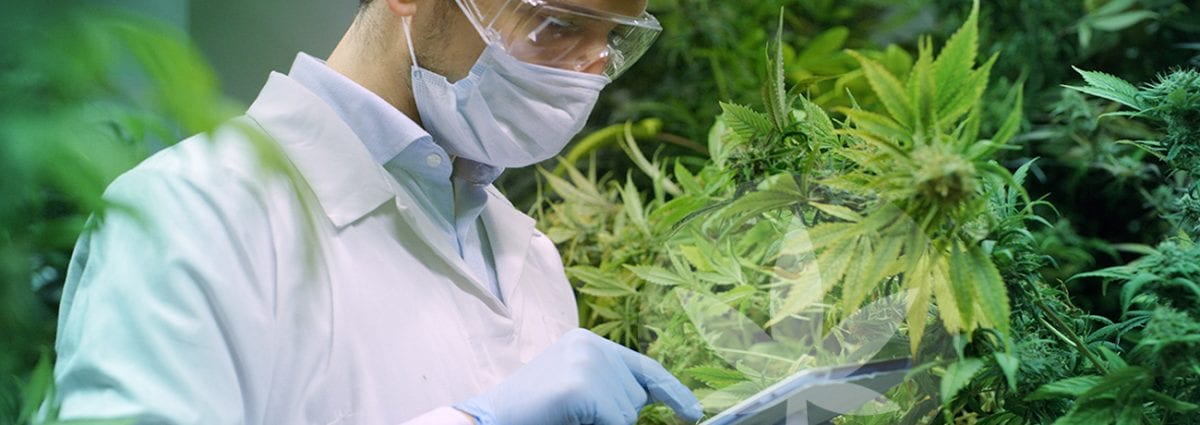If you use CBD or have done any research into CBD, you may have heard a little about cannabinoid receptors. Have you ever wondered what they are? And why do we have them? What do they actually do? Well, you’ve come to the right place. Here’s our 101 on cannabinoid receptors and CBD.
What Are Cannabinoids?
Cannabinoid is a term that’s bandied about a lot in the CBD industry, but what are cannabinoids? Cannabinoids are the general term for any chemical that has an impact on our cannabinoid receptors- more on these below. There’s often a misconception that all cannabinoids come from cannabis or hemp, but that’s not true. Phytocannabinoids come from hemp, and some other plants as well. Endocannabinoids are produced within the body. Synthetic cannabinoids are manufactured artificially.
What Are Cannabinoid Receptors? And Where Are They?
So, what are cannabinoid receptors? Cannabinoid receptors are part of the endocannabinoid system and are associated with mood, memory, pain-sensation, and the appetite for food. There are cannabinoid receptors in the brain and throughout the body, connected through the nervous system.
How many cannabinoid receptors are there in the human body? They are one of the most numerous receptors in the body with a vast network that’s considered to be one of the largest neurotransmission networks in the body. There are two types of cannabinoid receptors that have been discovered so far: CB1 and CB2. CB1 receptors are mainly found in the brain and somewhat throughout the nervous system. CB2 receptors are more widespread and are found in various regions of the body, including the functional parts of the immune system.
Why do we have cannabinoid receptors? Because the nervous system is hugely complex and deals with every single type of communication between brain and body. Cannabinoids are just one type of chemical that helps all mammals regulate and manage neurotransmission or the passing of messages within the brain. But why specifically do humans have cannabinoid receptors? Well, as mammals, we’ve evolved a lot of the same functions as our animal cousins, including many clever ways to balance out and regulate feelings, moods, and thoughts.
What Is the Endocannabinoid System?
We now know that cannabinoid receptors are part of the endocannabinoid system. But what is the endocannabinoid system? It consists of the cannabinoids we make ourselves or those we introduce into our bodies. For example, by taking CBD oil, our cannabinoid receptors and special enzymes help our bodies process the cannabinoids.
Every human has a slightly different endocannabinoid system. We’re all individuals, so we all react somewhat differently even to identical stimuli. In the same way, different people react differently to CBD, which is why it comes in a range of different products and strengths.
The role of the endocannabinoid system is complex and still being researched. It’s involved with maintaining what scientists call homeostasis, which means keeping things balanced inside the body even when the external environment changes. The endocannabinoid system, or ECS, may possibly help manage:
- Fertility
- Pregnancy
- Appetite
- Pain
- Pleasure
- Motor functions
- Memory
- Mood
- Body temperature
- The immune system
- Growth
- Movement
- Sleep
How Is CBD Related to Cannabinoid Receptors?
The first cannabinoid to be researched was THC. It’s well known that THC can have a psychoactive effect on the brain, giving the “high” feeling that is often undesirable. CBD, or cannabidiol, is also a cannabinoid from the hemp plant, but with absolutely no psychoactive effects. That’s why many people take products like CBD gummies to support their wellness routine. But what’s the connection between the endocannabinoid system and CBD?
By introducing an additional cannabinoid to our body’s internal systems, it’s possible that we could help influence the balance within our bodies. Sometimes the human body goes out of sync, even within the ECS. This might cause a lack of sleep, restlessness, mood changes, or loss of appetite. CBD users often choose to take CBD products for the potential benefits of rebalancing their ECS and trying to regain that homeostasis: a state of balance and equilibrium within the body.
For thousands of years, human beings have used plants to support their health and wellness. It’s only now, with scientific research, that we’re finally just beginning to understand the true potential of the amazing chemicals within these plants. New studies are coming out every year, so keep coming back to visit our blog to find out what’s new in the field of CBS, cannabinoid receptors, and the endocannabinoid system.
Takeaway
Cannabinoids have a direct effect on the body’s cannabinoid receptors, part of the endocannabinoid system (ECS). The ECS regulates many bodily functions, and its primary job is to maintain homeostasis, a state of equilibrium within the brain and body. CBD products may replicate the effects of naturally produced endocannabinoids, which is why many people take CBD to support their overall wellness.








